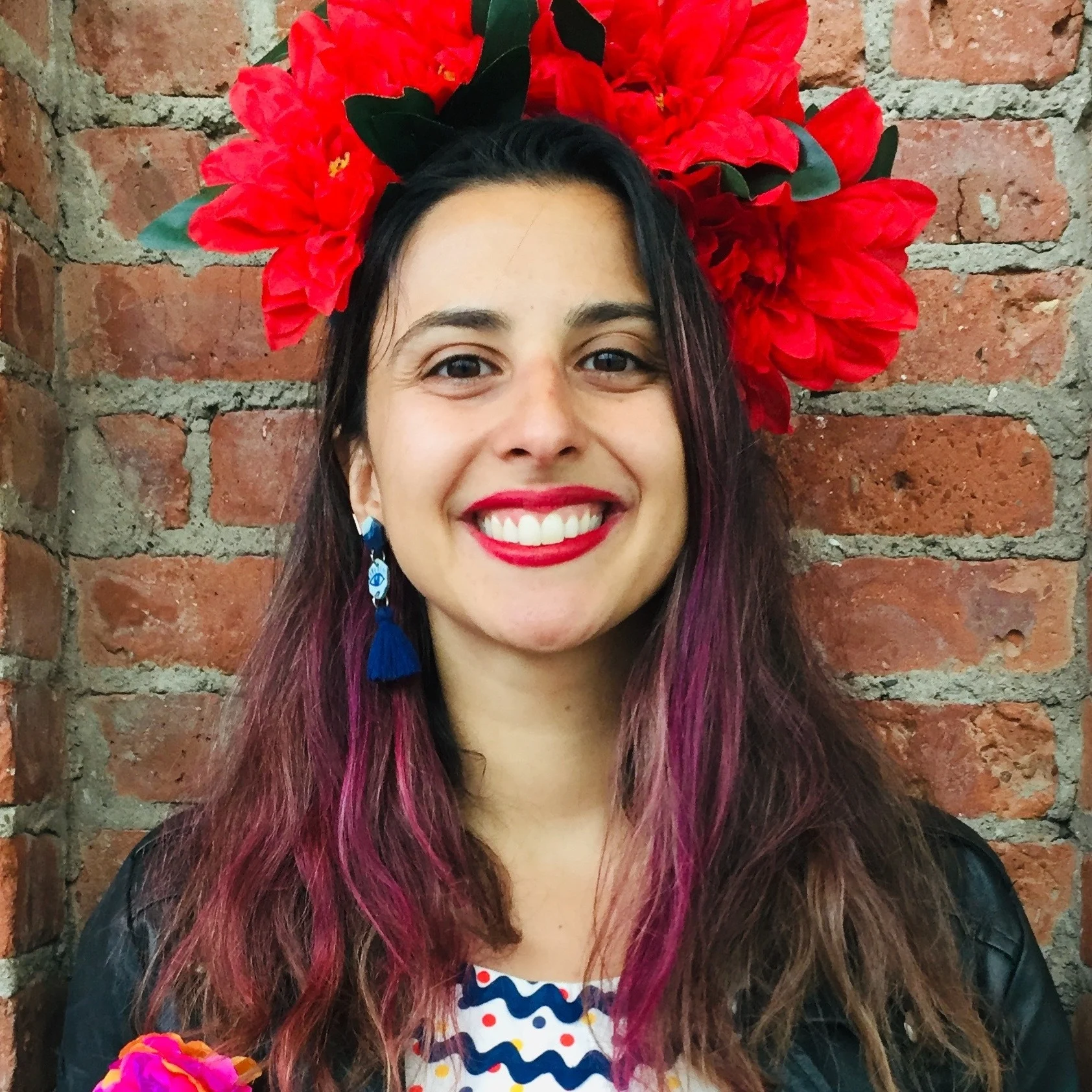How dysgraphia and written expression challenges inspired a film festival
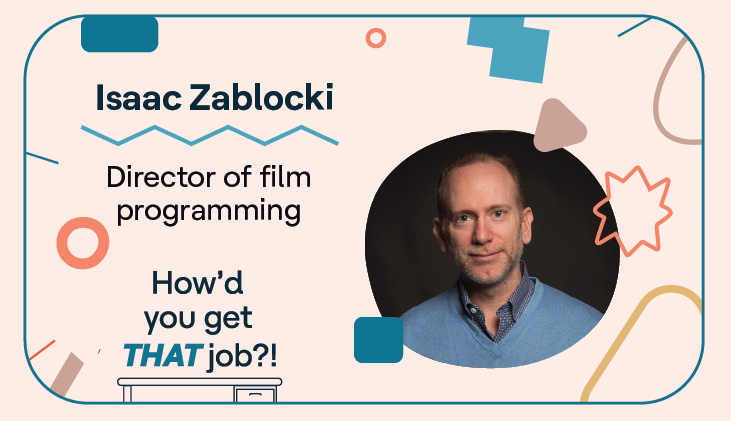
Stay in the know
All our latest podcasts delivered right to your inbox.
Isaac Zablocki always had messy handwriting and trouble getting his thoughts down on paper. When he was growing up, teachers in both Israel and the United States assumed his challenges had to do with switching between languages. It wasn’t until college that he was diagnosed with dysgraphia, dyslexia, and ADHD.
Because it was hard for Isaac to express himself through writing, he found himself drawn to film. Now, he’s the director of film programming at the Jewish Community Center (JCC) Manhattan. He’s also the co-founder of the ReelAbilities Film Festival, the largest U.S. film festival dedicated to showcasing films by or about people with disabilities.
Learn how Isaac’s work in the disability film world highlights differences and promotes stories of those who are often unheard.
Related resources
Episode transcript
Isaac: I look for films about outsiders. I look for films about learning disabilities, specifically learning differences. That's kind of — when I see those, I'm like, oh, why is this my favorite film?
Eleni: From the Understood Podcast Network, this is "How'd You Get THAT Job?!," a podcast that explores the unique and often unexpected career paths of people with learning and thinking differences. My name is Eleni Matheou, and I'm a user researcher here at Understood. That means I spend a lot of time thinking about how we find jobs we love that reflect how we learn and who we are. I'll be your host.
Isaac Zablocki watches movies for a living. He's the director of film programming at JCC Manhattan. He's also the co-founder of ReelAbilities New York Disabilities Film Festival. Understood's mission is to help shape the world for difference, something that Isaac is doing through cinema and storytelling. He also has dysgraphia, dyslexia, and ADHD. We talked about all of this when he came into the Understood studio. Welcome to the show, Isaac. Also, thank you for coming in in person. We don't always have people able to make it into the studio. So this is very fun.
Isaac: I appreciate the in-person experience.
Eleni: So, you have made a career out of film. I would love to hear what you enjoy about film and why you are attracted to that field.
Isaac: I feel like film is like ice cream. Like almost everybody likes it, right? I am often told, wow, you have the best job. I get to watch movies for a living. I don't even have to make movies. That's the hard part. I actually just watch movies and choose them and select which films are going to be shown and use that as a way to really amplify messages and try to get messages out there for films that otherwise wouldn't be seen and wouldn't be heard.
Eleni: Do you think your love for film relates to your learning differences at all?
Isaac: I didn't put that together until later in life, but there's no question that film and my learning disabilities and differences have a deep connection.
Eleni: Well, we haven't actually talked about what your differences are. So perhaps it would help if you talked about that and how it might relate to being a visual learner or how your differences might lead to you being a visual learner.
Isaac: So, I have dysgraphia. It impacts, of course, mostly my writing. There's a touch of dyslexia there too, that's according to my diagnosis, and ADHD. But the most clear one was dysgraphia. And that meant that my whole life, really, writing has been a real struggle for me. Spelling, letters — all of that is just a very foreign idea for me.
Eleni: Yeah. So when did you get diagnosed with dysgraphia?
Isaac: So I actually got diagnosed later in life. I know that from a very young age, from when I first started writing, I was getting support and going to all these meetings that I didn't know what they were and why I was going to a different room during some classes. I don't know if dysgraphia didn't really exist back then or the terminology wasn't there. But both myself and all my male siblings all have dysgraphia, as do our children who are male.
Eleni: Wow.
Isaac: It seems to be passed along in our family. And so it was actually my brothers who were diagnosed first when I was older, and I wasn't diagnosed till — officially — till college. But it was something that was always there.
I was born in New York. And then my family moved to Israel, and they always thought that I was possibly stuck in between the two languages and that's what was going on. And I'd score really high on the nonverbal sides of tests and then score low on the verbal side. And they said, this is not balanced out, and maybe do the tests in English. And the same thing would happen.
And suddenly, I mean, now I realize, oh, well, of course the same thing's going to happen. It's not a question of the language. It's a question of the disability. So I, you know, got diagnosed for college and it was really a way for me to get all the aids I needed through college. And it was extremely helpful to have that diagnosis officially, even though it's always been there.
Eleni: So just to clarify: With dysgraphia, is that literally the act of writing, like handwriting? Is it also about expressing thoughts onto paper?
Isaac: I mean, it's a really strange one. And yeah, it comes to like trying to express myself on paper. What would happen with every teacher my entire life is I would be understanding, following. And then when it came time to write things down on the paper, it was not only that my handwriting was illegible, but also actually putting my thoughts down in a way that I could really express myself. So there was such a disparity between that and my verbal expression.
Eleni: Yeah, yeah. I think it's really interesting. And I think it's important to note, because we haven't had that many people on the show with dysgraphia. So a lot of people might not know what it is. That's why I asked. Yeah.
Isaac: And yay, yay for dysgraphia. I mean, the more I come out about it, the more I hear other people have it. And recently my son was diagnosed with dysgraphia, and that allowed me to really experience it once again and just see. I totally understand what he's going through.
Eleni: Yeah.
So how did you end up organizing and curating film festivals? How did that come about?
Isaac: Well, I run the film center at the Marlene Meyerson JCC Manhattan, and I was hired for that job about 18 years ago. I've been there for a while. I did not know I had such commitment issues that I actually commit to a job. I think that's considered an issue these days. And it was a dream job. It really was. It was a perfect match for me as far as the work I wanted to do in film.
Before that, I had been working for Miramax. And for those who are familiar with Miramax, that's Harvey Weinstein. That was Harvey Weinstein's company back in Miramax days. I'm right here in New York. And it was it was a horrible place to work and not what I wanted to do with film. I wanted to do something meaningful. And believe me, there was nothing meaningful going on there. So I decided that I'm not going to spend another moment of my life. You know, life is short and precious. And to be on this planet and to spend it doing something in such a terrible environment — and I didn't even know about the big things that were going on, the big, bad things that were going on.
But I made this decision: I want to do things that are only meaningful. After I left Miramax, I was working as a film educator, and I'd go to schools in the Bronx and all over New York. I remember once in the Bronx, all the way to Coney Island, across the whole city, teaching film as a way — and that's how I would learn. So I was teaching Civil War through a filmmaking class, which kind of made it fun for the students and was a great way to kind of experience what they were studying.
And I realized that that really was my passion, that combination of education and film. And then I had this opportunity at the JCC. It was really a perfect match. And my goal there was to bring films that had impact — that would change people's perspectives. And I started developing different film festivals that relate to those themes. And our largest and I'd say — not to choose between my children — but our most important film festival is the ReelAbilities Film Festival, which is a disability-focused film festival. I promise I went into it thinking that this is about serving an underserved community and not really thinking about how connected I am to that community and to the realities of disability film world.
Eleni: Yeah, I was actually — that was, that was going to be one of my questions, because you talked about how, you know, representation is really important to you and like education through film. But if you hadn't yet made the connection of where you fit in the disability world, what was it that initially drew you to that topic?
Isaac: Yeah, I saw an underserved community. And I saw great films being made that weren't being shown. I saw a topic that was being shied away from — a topic that had so many stigmas related to it. And bringing these films to the forefront — as I said when I met my co-founder, I said, "This is the most important thing I can do." And it really has turned into that and has allowed me to go through my own journey as far as embracing my own disability and understanding that connection between my disability and what I do.
Eleni: 100%. Yeah, it's interesting that you related to it, but you hadn't made the connection yet of like why? So it was like very subconscious for you at the beginning.
Isaac: Yeah, I was a little slow with that. Yeah, the connections, the connection, all the evidence was there. I didn't completely put it together. It took me time. I myself had my own stigmas about myself. It was — talking about dysgraphia was something that you don't necessarily want to put out there as something that you're going to say the second you sit down for an interview. It's not always the most common thing. Today — I think it is more common today. It's something that I'm personally proud of and know that that's what makes me who I am and somebody who, because of that, thinks outside the box and does things a little bit differently. That actually is possibly why I succeed at what I do. If I succeed at what I do.
Eleni: Well, yeah, it's interesting that you say that, because I think from my research, we hear about people not wanting to bring up specifically, like mentioning a diagnosis or a label. And that's partly because, like I said, a lot of people don't know what dysgraphia is. And they might not know what it means. They might make assumptions about what that means. And that takes a lot of work from the individual to then like explain that, right?
And a lot of the people I talk to in my research talk more so about how they can ask for ways to be supported without specifically saying why. You know, it's like, yeah, hey, I would prefer that you — that I submit things verbally rather than in writing or whatever it might be. Yeah.
Isaac: Yeah. I definitely have had to dance around it. And I spend my life, you know, avoiding paper and pencil. Like, that's like, you know, oh, there's I need a hand in some notes to write something, you know, when you have like a group activity and you have to write something, I will find my way to avoid it. I mean, it's like that classic case of a kid in school who would be like, "Oh, suddenly I have to go to the bathroom." Suddenly I need to, you know, you know, my pencil breaks, whatever I can do to avoid it.
I do remember that at my interview 18 years ago for my job, I did mention it. I had the — I got that annoying question of kind of what your weakness is, which is, you know, you're supposed to say that I'm a perfectionist or something like that. That's the old "Trainspotting" joke. But I actually said, "Well, I can't write." I possibly didn't get into dysgraphia specifically. Maybe I did. And just said that, you know, "I have to type everything." And got the job anyway. So they understood.
Eleni: Yeah. I want to touch on one more thing that you said about stigma. I think the other tough thing is, with invisible disabilities, is that it's not like immediately evident when you meet someone that something might be going on. And, you know, we hear about that a lot, like also in terms of like the hierarchy of disabilities, you know, like physical. Well, I'm not that disabled. I'm not as disabled as. And that comparison. Am I deserving of help, like, or whatever it might be, right?
So I'm curious, like in your films, like if that comes up at all and like if you see yourself represented in the films. Or if you see invisible disabilities represented in films.
Isaac: It's a really interesting question because it comes up all the time. In general with ReelAbilities, I look for films about outsiders. I look for films about learning disabilities, specifically learning differences. That's kind of — when I see those, I'm like, oh, why is this my favorite film? Why? We have a committee that selects the films, but I push those kinds of films.
I remember there was one movie about a young girl. They're pumpkin picking, everybody's picking their pumpkins, and she picks a — like a different colored pumpkin, like a green pumpkin. And the teacher looks at her and says, "What are you — what are you doing? That's not — here. Let me take this one. Let me give you a normal pumpkin." And gave her a normal pumpkin. And she then secretly takes her green pumpkin because that's the one that she wanted. That was a pumpkin to her, and sneaks that one onto the bus as they as they travel back to school. Everybody on the committee said, "What's the disability here? I don't see it." And I was like, this is the best movie I've ever seen. This is — this is about neurodiversity. This is about seeing things differently. And, yeah, you know, I can't diagnose her specifically, the girl in the movie, but I could tell you that this is the experience.
Eleni: It also sounds like it's about pride in being different or like noticing difference and still wanting it, still being like, attracted to it.
Isaac: Yeah. I mean, I believe there's — there needs to be room for everyone in the sandbox. You know, some people fear difference, some people exclude difference. I try to stand up for difference and applaud difference. And that's a part of me, you know, I'm really defending myself here. If we're going to psychoanalyze my story, that's what we're here for.
Eleni: I'm a big fan of film festivals, definitely been a hobby of mine. I must say I've been a little bit more out of the loop than I normally would be since the pandemic. And coming back and being like, oh, we're doing cinema in person again? Amazing. But I have noticed since the pandemic that a lot of film festivals have made screenings available online, which is really interesting from an accessibility perspective, because it definitely means more people, you know, from outside those cities can attend. And also, I'm sure people that like, you know, wouldn't be able to attend for any reason. I'm curious to hear like what you've seen has changed since the pandemic, like both for the film industry, the film fest — the film festival industry, but also just like in general for like the disability community.
Isaac: It's amazing. We are witnessing a revolution. And I mean I've been a part of — ReelAbilities has been around for about 15 years. And I've seen how far and how fast this is changing. And we try to make, for instance, for ReelAbilities, all of our films as accessible as possible. We create audio description for films. I don't know if you've ever clicked on the AD link on Netflix, but you can listen to audio description. Sometimes it's done well, sometimes not so well. Captions is something that we do for all our films. Open captions. We show our films with the captions there on the screen, so everybody experiences that. And that's something that's — and we find, of course, other ways to kind of maximize accommodations for people.
But what's happening now, first of all, topic-wise — and this also relates to disability in my workplace — topic-wise, people are less afraid of the theme of disability. We saw CODA win the Academy Award last year and that was definitely a statement of inclusion. And saying the word — "disability" isn't a bad word. And that's something that I think is getting out there more and more. And recently, somebody laughed at me when I had a spelling mistake. And I said, "I have a disability." And they understood. They were like, oh, this is not something — disability is not something that I laugh at. Disability is something that I accommodate for.
Eleni: Totally. I wanted to go back to something you said earlier that I forgot to follow up on. I know we were talking about invisible disability. I wondered if you include mental health in that. So, you know, when you talk about disability and when you talk about the kind of films that are included in ReelAbilities, is that also covered?
Isaac: We try to cast as wide of a net as possible, and it might — some disabilities might not be considered by all. And we'll say yes to those and try to find ways to include, you know, a young girl choosing the wrong pumpkin, as the teacher might have thought. That's part of it for me. And we look for that kind of diversity.
We try to make the actual connection. We try to be as responsible as possible towards the approach to disability and making sure that there's an authentic connection within all of our films. And this is not just like, you know, people kind of using disability as a way to bring up emotions, but rather to really tell a story that includes disability. Those are my favorites: when it's not about a disability, but actually just includes a disability where — however it might manifest itself.
Eleni: Totally. Yeah. I mean, and that's — I think that's a conversation that, well, how do I say this? Like we've definitely seen a shift over the years in terms of representation, like in all forms. And you know, we talk about that a lot with like, you know, racial representation, gender, sexuality. Like, it's not necessarily about this being like the token gay character or the token Black character. It just like happens to be a character that is in the film that is gay or Black. So it's not necessarily about that. It's just like yeah, this is just another character.
Isaac: Yeah. And for me, it's sometimes also not just about, of course, authentic acting, I think, is very important for representation at the moment. But it's also about the way the story is told. So also behind the scenes. Having people with disabilities who actually have lived experiences being a part of telling the story, and some — and in key roles. I mean, I think, for instance, like a person with a disability, writing the script is even more important than the actors. I think that's really where, you know, you have to have a real understanding of whatever disability you're putting out there. And I think we'll feel it when it's fake.
Eleni: Yeah.
Isaac: And we'll feel it when it's forced. And that's why some of my favorite films are actually at ReelAbilities every year. I see films not only about disabilities, I see films from all around the world. And it's those authentic representations that really are the ones that stay with me.
Eleni: Well, thank you so much for being here.
Isaac: A pleasure. Thanks for having me.
Eleni: You've been listening to "How'd You Get THAT Job?!" from the Understood Podcast Network. The show is for you. So we want to make sure you're getting what you need. Email us at thatjob@understood.org with your thoughts about the show. Or maybe you'd like to tell us how you got THAT job. I'd love to hear from you.
If you want to learn more about the topics we covered today, check out our show notes for this episode. We include more resources as well as links to anything we mentioned in the episode. Also, one of our goals at Understood is to help change the workplace so everyone can thrive. Check out what we're up to at u.org/workplace. That's the letter U dot O R G slash workplace.
Understood.org is a resource dedicated to helping people who learn and think differently discover their potential and thrive. Learn more at understood.org/mission.
"How'd You Get THAT Job?!" is produced by Grace Tatter. Briana Berry is a production director. Our theme music was written by Justin D. Wright, who also mixes the show. Margie DeSantis provides editorial support. For the Understood Podcast Network, Laura Key is our editorial director, Scott Cocchiere is our creative director, and Seth Melnick is our executive producer. And I'm your host, Eleni Matheou. Thanks again for listening.
Host
Eleni Matheou
leads user research for Understood. She helps Understood to center its work on the lived experiences and voices of people who learn and think differently.
Latest episodes
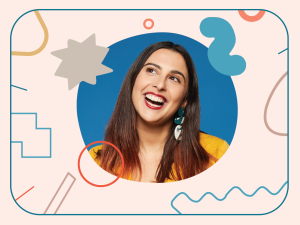
June 28, 2023
In the series finale of How’d You Get THAT Job?!, host Eleni Matheou unpacks what we’ve learned about how people thrive at work.

June 14, 2023
Nathan Friedman is the co-president and chief marketing officer of Understood.org. And he has dyslexia and ADHD. Learn how he got into the C-suite.
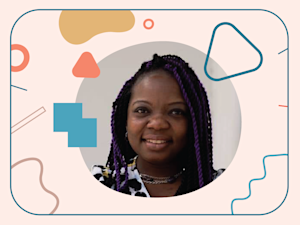
May 31, 2023
Dr. Loucresie Rupert is a child, adolescent, and adult psychiatrist with ADHD. She didn’t have an easy time getting her diagnosis as a Black woman.
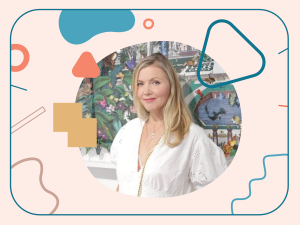
May 17, 2023
Kristjana Williams is a London-based Icelandic artist with dyslexia. She wasn’t diagnosed until she was 25, and now she has her own studio.

May 3, 2023
Aideé Chávez Frescas has ADHD, and is a senior social media manager at Understood. Her posts help end stigma and show others they’re not alone.
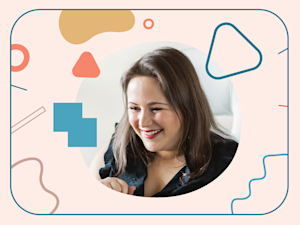
April 19, 2023
Alex Gilbert is a career coach with ADHD and dyslexia. After working in leadership development for years, she started her own coaching business.
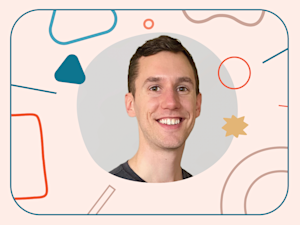
April 5, 2023
Dan Reis was diagnosed with ADHD during the pandemic. Now, he’s made it his mission to explore coping strategies to help him get his work done.
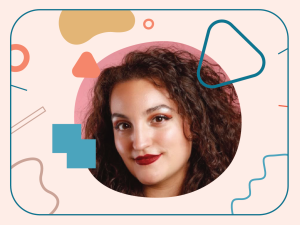
March 22, 2023
Rachel Basoco’s two jobs keep things interesting for her ADHD. She works full time at Fidelity, and part time at 11:11 Media, Paris Hilton’s company.
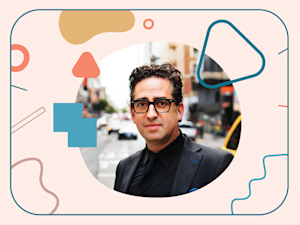
March 8, 2023
Gil Gershoni says that everything he does is dyslexic. He founded the branding firm Gershoni Creative and hosts the Dyslexic Design Thinking podcast.
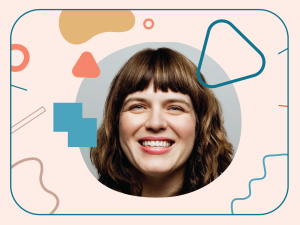
February 22, 2023
Claire Odom is a psychotherapist with ADHD. She’s also a disability inclusion consultant who has advice on navigating the workplace.
